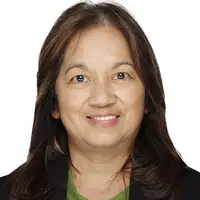At this year’s Asia Clean Energy Forum (ACEF), RTI advocated strongly for cross-cutting solutions in the food, energy, and water sectors, and ably demonstrated to the decision-makers and private sector the inevitable linkages among them. Held at the Asian Development Bank’s headquarters in Manila, Philippines, ACEF 2019 lasted from June 17-21 and gathered an impressive number of nearly 1,600 participants from over 78 countries.
Energy is not only vital to achieving economic development, it is a critical input to water resources management—and powers agriculture from farm equipment to food processing. Similarly, the water sector underpins energy production and is fundamental to agricultural growth. Unfortunately, the push for inclusive but fragmented policy development in these sectors can lead to inadvertent adverse consequences. Farmlands being converted to solar farms, or crop production being diverted to biofuels threaten the food security needed to even dream of achieving the smallest development goals.
With years of experience developing and applying a systems-based framework for complex sectors, RTI led a deep-dive-workshop titled “The Food-Water-Energy Nexus: Transforming Science for Sustainable Societies” at ACEF on June 19. The seminar complemented traditional fragmented approaches to policy development within the agriculture, water, and energy sectors. With USAID Philippines, we anchored the workshop on the legacy study that examined the interaction among the three sectors, a study that RTI left behind under the Building Low Emission Alternatives to Develop Economic Resilience & Sustainability (B-LEADERS) project.
Based on the B-LEADERS study, the RTI team presented to 89 participants a suite of hydrologic and economic tools developed and tailored to the island of Mindanao in the Philippines. The team showcased the RTI Hydrologic Resources Assessment Model (HydroRAM), a global water resources model, to calculate a 20-year, daily surface water balance for 844 sub-watersheds within eight major priority river basins in the island. RTI also briefly presented a hydro-economic simulation framework dashboard designed to assess the tradeoffs of alternative development pathways and climate change scenarios. Participants exited with an understanding of complex interactions between energy and food production as well as urban water supply to better their own decision-making in more localized contexts.
We recognize that leading the world’s decision-makers in workshops like our very own requires years of successful experiences in cross-sectoral problem-solving—experiences that we have at RTI. We are proud to engage in the thought leadership needed to solve cross-sectoral problems hindering long-term global development goals at ACEF and abroad. In Asia and the rest of the world, we believe this approach will fulfill and sustain the dream for a fully developed world.

